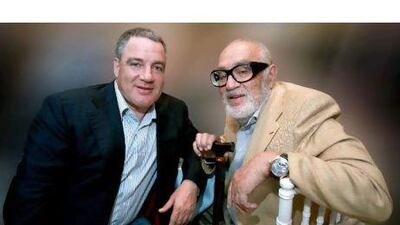TEL AVIV // Allegations that Israel's wealthiest family engaged in business dealings with Iran in violation of a US ban have embarrassed the Israeli government and spurred controversy in a country that views Iran as its chief enemy.
Last week, the Ofer Brothers Group, an Israeli conglomerate with interests ranging from shipping to oil, chips and banking, was one of seven international companies that the US State Department said would be hit with American sanctions for trade with Iran.
According to the allegations, a Singaporean subsidiary of the Ofer family's business empire sold an oil tanker valued at US$8.65 million (Dh31.5m) in September to a front company that then sold it to the Islamic Republic of Iran Shipping Lines. The sale was in violation of US sanctions imposed last year on Iran's energy sector.
The affair has shed an unfavourable light on Israel, which for years has insisted that tougher international economic sanctions be imposed on Iran in a bid to curtail its nuclear armament. As recently as last week, the Israeli prime minister, Benjamin Netanyahu, said in a speech before a joint session of the US Congress that "time is running out" on stopping Iran's nuclear ambitions and lambasted some nations for failing to make a bigger effort on the issue.
But the US sanctions on the Ofer family have exposed the Israeli government's incompetence in enforcing such policies at home and have raised questions about Israel's own commitment to battling Iran's nuclear ambitions, commentators said.
Yossi Melman of the Israeli newspaper Haaretz wrote that Israel's approach was "hypocritical and self-righteous". He added: "Israel preaches to the whole world about the need for sanctions on Iran, while itself doing nothing about them."
According to Melman, at least 200 Israel-based companies have indirect trade ties with Iran. Those include investments in the Iranian energy industry, which is the country's main source of income and is believed to funnel funds to the nuclear programme, he said.
Such indirect dealings have included the agreement of Israel's Airport Authority to buy equipment from Germany's Siemens worth 150 million shekels (Dh160m), despite Siemens's extensive business ties in Iran. Furthermore, the Israel Electric Corporation has awarded a 500 million-shekel contract to Haldor Topsoe for air-pollution filters even as the Danish company builds Iranian refineries worth billions of dollars, Melman wrote.
Yuval Shany, a law professor at the Jerusalem-based Hebrew University, told the newspaper that the US has "much tougher" laws than does Israel on forbidding trade activities with countries regarded as enemies. He said that Israel's ban on trade with enemy states is unclear in what kind of businesses it includes, therefore casting doubt on whether the Ofer family actually violated Israeli law.
With the sanctions, the Ofer family and its Singaporean subsidiary, Tanker Pacific, would be barred from obtaining financing from the Export-Import Bank of the United States, securing loans that are more than $10 million from American financial institutions or receiving US export licences.
The Ofer family, whose net worth has been estimated by Forbes magazine at $10.3 billion, has insisted that it did not know of the sale of the tanker, which was sold to a third party before being transferred to Iran. But unidentified sources close to the family have been quoted by newspapers as saying that Israeli authorities had given permission for Tanker Pacific's vessels to anchor in Iran.
Nevertheless, on Monday, the government distanced itself from the affair, with Mr Netanyahu's office denying ever authorising the tanker sale or having prior knowledge about it.
In the meantime, the Ofer family's version of events continued to face questions amid Israeli reports that at least eight ships belonging to companies owned by the group are also alleged to have docked in Iranian ports to load and offload cargo in recent years.
Iran itself has vigorously denied having economic ties with the Ofer conglomerate or any other Israeli firm.
Despite Israel and Iran viewing each other as arch foes, the episode has been a reminder of the relations that existed between the two countries before the 1979 Islamic revolution which forced Shah Mohammad Reza Pahlavi into exile amid discontent with his authoritarian rule.
While the Shah did not officially recognise Israel, Israel had for years kept a permanent delegation in Tehran to serve as an unofficial embassy. Israel had also drawn a considerable portion of its oil supplies from Iran, with which it had also created a joint pipeline that allowed Iranian oil to be transported to European markets.
The two countries also had secret military links that Israeli experts believed to have been wide-ranging during the Shah's regime. Despite Israel viewing Iran as an enemy state following the 1979 revolution, the country in 1985 also took part in the so-called Iran-Contra Affair. In what became a major political scandal, the then US president, Ronald Reagan, tried to win the release of seven American hostages held by Iranian-sponsored militants in Lebanon by secretly authorising Israel to sell weapons to Iran in violation of an arms embargo.

